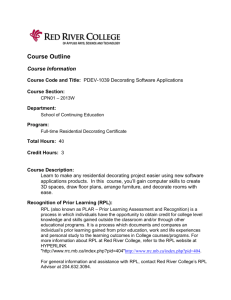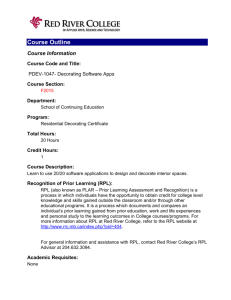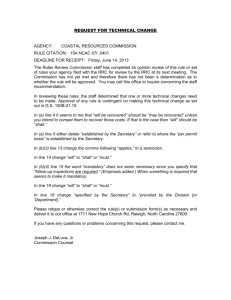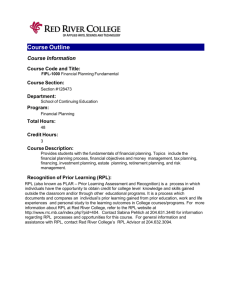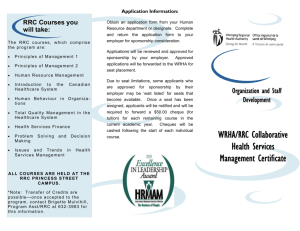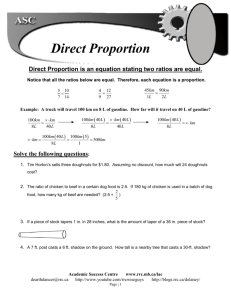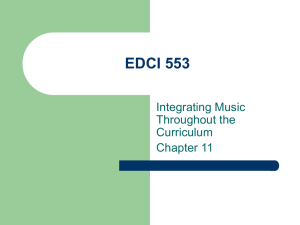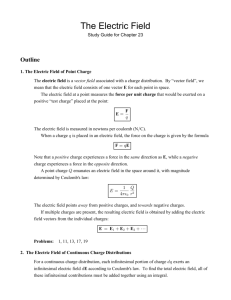Course Outline - RRCTeacherEducation
advertisement
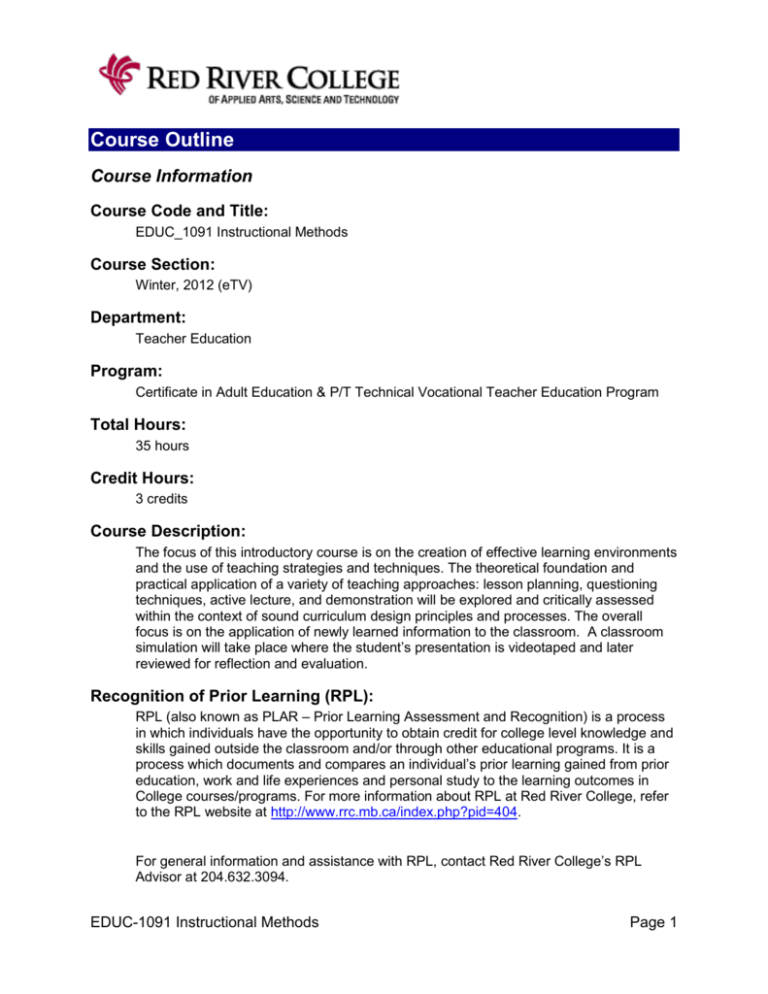
Course Outline Course Information Course Code and Title: EDUC_1091 Instructional Methods Course Section: Winter, 2012 (eTV) Department: Teacher Education Program: Certificate in Adult Education & P/T Technical Vocational Teacher Education Program Total Hours: 35 hours Credit Hours: 3 credits Course Description: The focus of this introductory course is on the creation of effective learning environments and the use of teaching strategies and techniques. The theoretical foundation and practical application of a variety of teaching approaches: lesson planning, questioning techniques, active lecture, and demonstration will be explored and critically assessed within the context of sound curriculum design principles and processes. The overall focus is on the application of newly learned information to the classroom. A classroom simulation will take place where the student’s presentation is videotaped and later reviewed for reflection and evaluation. Recognition of Prior Learning (RPL): RPL (also known as PLAR – Prior Learning Assessment and Recognition) is a process in which individuals have the opportunity to obtain credit for college level knowledge and skills gained outside the classroom and/or through other educational programs. It is a process which documents and compares an individual’s prior learning gained from prior education, work and life experiences and personal study to the learning outcomes in College courses/programs. For more information about RPL at Red River College, refer to the RPL website at http://www.rrc.mb.ca/index.php?pid=404. For general information and assistance with RPL, contact Red River College’s RPL Advisor at 204.632.3094. EDUC-1091 Instructional Methods Page 1 Academic Requisites: EDUC – 1090 Introduction to Education Course Format & Delivery: Classroom: Large and small group, as well as direct instruction, modeling, cooperative learning, group and self critique and individual research will be involved in the delivery of the course. Other: A classroom simulation will take place where the students’ presentation is video taped and will be reviewed for reflection and evaluation. Course format: Lecture, group discussion, films/videos, case studies, projects and classroom simulations. Effective Date: January 2012 Instructor Information Instructor: Eva Brown Email: ebrownorama@gmail.com, ebrown38@rrc.mb.ca Office: C314 – 2055 Notre Dame Avenue, RRC Notre Dame campus Office Hours: By appointment Assignments on the course wiki provided at first class. Student Readiness Technology & Equipment Readiness: High speed internet connection Perform a connectivity test prior to the beginning of the course (as per instructions provided to registrants via email prior to course start). Student Commitments and Contact Times: 35 hours of formal classroom time. Students should be prepared to commit 2-3 hours per week outside of scheduled class time to work on assignments and prepare for class discussions. Course Resources: Provided by instructor by email and on the course wiki. Textbook(s): None EDUC-1091 Instructional Methods Page 2 Student Learning Learning Outcomes: Upon completion of this course, each student should have the knowledge, skills and attitudes to: 1. Compare and contrast several theories related to how individuals learn, including: principles of adult learning, constructivism, skill development, and behaviorist and humanistic perspectives. 2. Describe the critical elements of an inviting safe learning environment and strategies for creating such environments. 3. Describe the relationship between teaching/learning strategies and the other elements of curriculum design: intended learning outcomes, learner needs, constraints, teaching resources, content, audio/visual materials and evaluation of learning. 4. Develop and deliver one or more 25-minute active lecture/demonstration microteaching sessions utilizing questioning techniques and including comprehensive lesson plans and audio/visual aids. 5. Analyze and evaluate the critical elements and effectiveness of a microteaching session. This analysis and evaluation must be grounded in research and literature presented. 6. Recognize and display professional attitudes and practices. Instructional Schedule: -- subject to change Date Topic Learning Activities Week 1 – January 17 • • • • Course Overview Characteristics of Effective Teachers Establishing a Climate for Learning Learning Styles Reflections Doc Group Assignment—Traits of an Effective Teacher Week 2 – January 24 • • • Instructional Techniques/Methods Teacher-centered approaches Bloom’s Taxonomy - Setting Objectives/Learning Outcomes Website Survey Reading and Summary Reflections Doc Week 3 – January 31 • • Learner-centered approaches Learning Theories Group Presentations—Teacher-centered approaches Learner-centered approach lesson plan Blog Search Reflections Doc Week 4 – February 7 • • • Learning and instructional Strategies Classroom Assessment Microteaching Technology—Google Presentation— Strategies Lesson Plan for microteaching Reflections Doc Week 5 – February 14 • Microteaching 6 student lessons Week 6 – February 21 • No eTV class this week. Students to use time as a lab to complete microteaching preparations and other assignments. Reading EDUC-1091 Instructional Methods Page 3 Week 7 – February 28 • Microteaching 6 student lessons Week 8 – March 6 • • Microteaching Assessment, Reflection, Evaluation 6 student lessons Important Dates: NOTE: The following dates are subject to change based on the needs of the students at the instructor’s discretion. Students will be notified ahead of time of any changes. Date Important Information January 17, 2012 First day of access to course site on Wikispaces February 21, 2012 No face to face class or eTV class Assessment and Evaluation: Assessment Weight 1. Professionalism – Individual wiki pages developed and complete 30% 2. Microteaching – podcasts (uploaded/shared with instructor) 35% 3. Lesson Plans – uploaded to individual wiki pages 35% Total: 100% Letter Grade Distribution A+ 4.5 90 to 100% C+ 2.5 65 to 70% A 4.0 80 to 89% C 2.0 60 to 64% B+ 3.5 75 to 79% D 1.0 50 to 59% B 3.0 70 to 74% F 0.0 0 to 49% A minimum grade of ‘C’ is required to attain credit for this course. All course work must be completed to attain a final mark in the course. Course Policies General Academic Policies: EDUC-1091 Instructional Methods Page 4 It is the student's responsibility to be familiar with and adhere to the Red River College (RRC) Academic Policies and Procedures. These Policies and Procedures can be found on the RRC website in the “Academic Matters” section at http://www.rrc.mb.ca/policies/policies.htm. Respectful College Policies: The College is committed to providing a respectful College environment, free from harassment and discrimination, in which employees and students are treated with respect and dignity. The College will not condone or tolerate disrespectful behavior or harassment in any form, whether it occurs on College property or in relation to College activities. These Policies and Procedures can be found on the RRC website in the “Student Matters” section at http://www.rrc.mb.ca/policies/policies.htm. Academic Integrity: For any assignment, test, or exam, the copying of answers or files from another student, the providing of answers or files to another student, or the copying and pasting of information directly from the Internet without proper reference, is a violation of academic integrity and may lead to disciplinary measures. Refer to RRC policy S4 at www.rrc.mb.ca/files/File/policies/new/S4%20Academic%20Integrity.pdf. It is the student's responsibility to be familiar with and adhere to the Red River College (RRC) Academic Policies. Instructors have the responsibility to ensure that academic honesty is maintained in their academic activities. Learners assume full responsibility for the content and integrity of the coursework they submit. All students are responsible for familiarizing themselves with Red River College’s Academic Integrity Policy in its entirety. The complete policy can be located via the following link http://www.rrc.mb.ca/files/File/policies/new/S4%20Academic%20Integrity.pdf Date Revised: January 6, 2012 Authorization: This course is authorized for use by: _______________ ____________ Chair, Teacher Education January 6, 2012____ Date ©Red River College 2011 EDUC-1091 Instructional Methods Page 5
